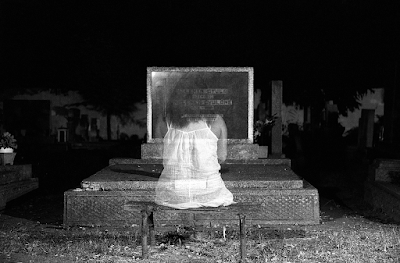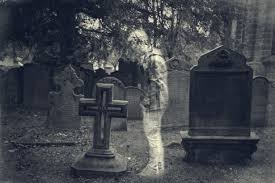Dreams have always been a subject of curiosity and profound insight in various cultures, including Christianity. Among the myriad of themes that appear in our nocturnal narratives, the presence of ghosts can be particularly unsettling and thought-provoking. The biblical dream interpretation of ghosts provides a unique lens through which to understand these mysterious encounters. Unlike the typical horror connotations associated with ghosts, the biblical perspective offers interpretations that can lead to spiritual growth, understanding, and peace. This article delves into the reasons why people dream about ghosts, incorporating biblical wisdom and practical advice for integrating these insights into one's waking life.
Recurring dreams about ghosts can signify unresolved issues or deep-seated emotions that one may not be addressing in their waking life. According to biblical perspectives, these dreams can also be interpreted as messages from God or as manifestations of spiritual battles. They might highlight areas of our lives that require attention, reflection, or repentance. Understanding the context and emotions associated with these ghostly dreams can provide clarity and direction for personal growth and spiritual development.
Trauma
In the biblical sense, dreams about ghosts following traumatic events can signify the soul's struggle to find peace and closure. For instance, the story of King Saul consulting the Witch of Endor (1 Samuel 28:7-19) serves as a cautionary tale about seeking answers from spirits, highlighting the importance of seeking God for comfort and guidance instead.
People who have experienced significant losses or traumatic events might encounter ghosts in their dreams as a manifestation of their unresolved grief or guilt. These spirits may represent the unspoken words or unfinished business with the deceased. Individuals are encouraged to seek healing through prayer, counseling, and community support. Reflecting on verses like Psalm 34:18, "The Lord is close to the brokenhearted and saves those who are crushed in spirit," can offer comfort and reassurance.
Fears
Dreams involving ghosts can often reflect our fears and anxieties. Biblically, these fears may symbolize spiritual weaknesses or doubts, as seen in Job 4:15, where a spirit passes before Eliphaz, causing him to tremble with fear.
This type of dream could occur in individuals facing uncertain situations, changes, or challenges that evoke deep-seated fears or insecurities. Addressing these fears involves prayer, scripture meditation, and community support. Philippians 4:6-7 encourages believers to not be anxious but to present their requests to God, which can transform fear into peace.
Communication
In biblical dream interpretation, encountering a ghost can symbolize the need for communication, either with oneself, with others, or with God. This theme is deeply rooted in the biblical tradition where dreams serve as a conduit for divine messages, as highlighted in Acts 2:17, which prophesies that in the last days, God will communicate through dreams and visions. This passage suggests that dreams can be a medium for God to reveal truths, resolve conflicts, or point out unaddressed issues.
People who experience these dreams might be facing situations in their waking life where communication has broken down or where truths have been left unspoken. The appearance of a ghost in this context might represent an unresolved issue or a call to mend relationships. It's an invitation to explore deeper feelings, perhaps related to guilt, regrets, or misunderstandings that have been ignored or suppressed.
We are encouraged to seek reconciliation with others or with themselves. This might involve initiating difficult conversations, expressing long-held feelings, or simply spending time in prayer or meditation to understand the divine message being communicated. It's about opening channels of communication that have been blocked, leading to spiritual growth and personal healing.
Loss
Dreaming about ghosts can frequently be tied to the experience of loss, which can manifest as a form of mourning or longing for what has passed. This aligns with the Biblical perspective found in Ecclesiastes 12:7, which speaks to the transient nature of life and the return of the spirit to God after death. Such dreams may symbolize the dreamer's struggle to come to terms with the loss of a loved one, the end of a significant phase of life, or the abandonment of a long-held belief.
Loss are personal and varied, often leading to feelings of emptiness, sadness, or even relief. The ghost in these dreams could represent the dreamer's attempt to reconcile with the past, to understand the loss, or to seek closure. It may also signify the unresolved grief that haunts the individual, reminding them of their need to process their emotions and accept the reality of the loss.
Individuals might find comfort and resolution by engaging in activities that honor the memory of the lost person or bygone era. This could include writing letters, creating art, participating in rituals of remembrance, or simply sharing memories with others. Additionally, turning to scripture for comfort and praying for peace can provide solace and a deeper sense of connection to the eternal, helping to alleviate the weight of their grief.
Warning
In biblical narratives, dreams often serve as divine warnings. Encountering a ghost in a dream can be perceived as a cautionary signal, urging the dreamer to reassess their current path or decisions. This concept is mirrored in the wisdom of Proverbs 14:16, where it is stated that the wise are cautious and avoid evil, but fools are reckless and overly confident. This scripture suggests that heedlessness can lead to spiritual and moral downfall, emphasizing the importance of vigilance and self-reflection.
Individuals who dream of ghosts might be receiving a warning to pause and reflect on their actions, beliefs, or life direction. The ghost could symbolize ignored consequences, overlooked dangers, or neglected ethical dilemmas that need to be confronted. This kind of dream could highlight feelings of guilt, fear, or uncertainty about certain aspects of the dreamer's life, suggesting that it is time to address these issues head-on.
We are encouraged to undertake a period of introspection and evaluation. This might involve examining personal values, reassessing priorities, or seeking forgiveness and making amends where necessary. Engaging with spiritual practices, seeking counsel from trusted individuals, and studying biblical teachings can also provide guidance and clarity, helping to navigate the warning and alter one's course towards a more fulfilling and righteous path.
Closure
Dreams featuring ghosts can also be interpreted as a need for closure or resolution. This aligns with the biblical understanding of peace and reconciliation, as highlighted in Matthew 5:24, which instructs individuals to reconcile with their brother before offering gifts at the altar. This passage underscores the importance of resolving conflicts and finding peace, both with others and within oneself.
The presence of a ghost in a dream might indicate unresolved issues, lingering regrets, or unfinished business with someone from the dreamer's past. It could represent the dreamer's subconscious desire to address and settle these unresolved matters, allowing them to move forward without the burden of past grievances or regrets.
People need to take concrete steps toward resolving past conflicts. This could involve reaching out to someone they have wronged, forgiving someone who has hurt them, or simply coming to terms with events from their past. Prayer, meditation, and reflection can aid this process, providing the strength and wisdom needed to seek closure and heal old wounds. Engaging in this process of reconciliation can lead to significant personal growth and a deeper sense of inner peace.
Biblical Meaning of Dreams about Ghost
Dreams have always held significant meaning in the biblical narrative, serving as divine messages, warnings, and revelations. The interpretation of dreams about ghosts from a biblical perspective offers a unique insight into our spiritual and emotional states. Unlike contemporary understandings that may associate ghosts with fear or the supernatural in a negative sense, the biblical approach can provide a more nuanced and spiritually rich interpretation.
Dreaming about Seeing a Ghost
Dreaming about seeing a ghost can be startling and evocative, prompting introspection and spiritual reflection. In biblical terms, such visions might remind us of Hebrews 13:2, "Do not forget to show hospitality to strangers, for by so doing some people have entertained angels without knowing it." This passage suggests that not all spiritual encounters are to be feared but can be messages or guidance from God. In the context of dreaming about a ghost, this might symbolize the need to be open to unexpected messages or help from divine sources.
For individuals experiencing these dreams, the ghost could represent overlooked aspects of their life or a call to pay attention to spiritual matters they have neglected. It might also signify the presence of unresolved emotions or memories that need to be acknowledged and addressed.
One could start by exploring areas of neglect, whether personal, relational, or spiritual, and consider how they might open their heart more to divine guidance. It may also be beneficial to engage in practices that enhance spiritual awareness, such as prayer, meditation, or studying scripture, to discern any messages these dreams may convey.
Dreaming about Talking to a Ghost
This dream scenario often reflects the dreamer's subconscious desire to reconcile with unresolved issues or to communicate with parts of themselves that have been ignored or suppressed. Biblically, this can relate to the concept of confession and counsel as seen in James 5:16, "Therefore confess your sins to each other and pray for each other so that you may be healed." This verse emphasizes the healing that comes from opening up and addressing buried issues.
Individuals who find themselves talking to a ghost in their dreams might need to consider what messages or truths they are avoiding in their waking life. The ghost could symbolize an ignored conscience, repressed emotions, or neglected relationships that need to be brought into the open and healed.
We are encouraged to seek honest self-reflection and to engage in open communication with others. Seeking the counsel of a trusted friend, family member, or spiritual advisor can provide the support needed to face these hidden truths and foster healing and reconciliation.
Dreaming of a Flying Ghost
Dreams of flying are often associated with freedom and escape, but when this motif is combined with the image of a ghost, it could symbolize the desire to break free from past regrets or guilt. In biblical terms, this aligns with Psalms 55:6, "I said, 'Oh, that I had the wings of a dove! I would fly away and be at rest.'" This verse reflects the yearning for liberation from worldly troubles or emotional burdens.
For those dreaming of a flying ghost, it may indicate a need to release old grievances, to forgive oneself or others, or to find peace with unresolved issues. The flying aspect could represent the dreamer's desire to transcend difficulties and find a higher perspective or spiritual release.
Identifying the burdens that need lifting and seeking ways to resolve or let go of them. This could involve spiritual practices, forgiveness, therapy, or simply adopting a new outlook on life that emphasizes freedom and peace over past pains.
Dreaming of Becoming a Ghost
Dreaming of becoming a ghost can be a profound experience, often reflecting feelings of invisibility, isolation, or detachment from the physical world. In a biblical context, this might echo the sentiments of Elijah in 1 Kings 19:4, where he feels utterly alone and wishes to die. Yet, this passage also offers hope as God reaches out to Elijah in his despair.
Individuals experiencing this type of dream may feel overlooked, misunderstood, or disconnected from their community or spiritual life. The dream may be a signal to reevaluate their relationships, beliefs, or the way they are navigating their life's journey.
To find meaning and direction from this dream in waking life, one could consider ways to reconnect with others and with God. This might involve engaging more with community activities, opening up about their struggles, seeking companionship, or delving deeper into their spiritual practices to rekindle their sense of belonging and purpose.
Dreaming of Your Soul Leaving Your Body
This type of dream, often referred to as an out-of-body experience, can be unsettling but also profoundly spiritual. In the biblical context, such experiences can be likened to Paul’s account in 2 Corinthians 12:2-4, where he describes being caught up to the third heaven, whether in the body or out of the body, he does not know. This passage suggests that spiritual experiences can transcend physical boundaries, offering insights or revelations beyond our earthly comprehension.
For those who dream about their soul leaving their body, it might reflect a desire for spiritual awakening or a need to escape from current pressures or problems. It could also symbolize a deep yearning for connection with the divine, an exploration of the self beyond the physical realm, or a subconscious processing of life's mysteries and challenges.
We might explore practices that enhance spiritual connection and self-awareness, such as meditation, prayer, or reflective journaling. It could also be a call to address the stressors in their life, seeking balance and peace to ensure a grounded and harmonious existence, both in the spiritual and physical realms.
Dreaming of an Evil Ghost
Dreaming of an evil ghost can evoke fear and anxiety, but within a biblical framework, such dreams can serve as a call to spiritual warfare and vigilance. Ephesians 6:12 reminds us that our struggle is not against flesh and blood, but against spiritual forces of evil. This verse underlines the Christian belief in the reality of spiritual battles and the necessity of being spiritually equipped and guarded.
When individuals dream of an evil ghost, it might symbolize internal conflicts, temptations, or the presence of harmful influences in their life. The dream could be a warning to reassess personal faith, to identify areas of vulnerability, and to fortify oneself against negative forces.
We are encouraged to apply spiritual disciplines like prayer, Bible study, and fellowship with other believers. It also means identifying negative or harmful influences and taking steps to remove or diminish their impact. Seeking support from a faith community and leaning into one's spiritual beliefs can provide strength and protection against the challenges represented by the evil ghost.
Dreaming of a Kind Ghost
Conversely, dreaming of a kind ghost might reflect the presence of a comforting or guiding force in one's life. This aligns with the concept of the Holy Spirit as a counselor and helper, as described in John 14:26, where Jesus promises the Spirit will teach and remind believers of everything He has said to them. This verse highlights the role of divine guidance and comfort available to believers.
Individuals who dream of a kind ghost may be receiving reassurance, guidance, or affirmation from their subconscious, possibly reflecting the influence of the Holy Spirit or a reminder of God’s presence and support in their lives. This dream can encourage the dreamer to open their heart to divine guidance and to seek comfort in their faith.
To bring this understanding into their daily life, one could focus on nurturing their spiritual relationship, being open to guidance and inspiration, and practicing gratitude for the divine presence that guides and sustains them. Engaging in prayer, meditation, and communal worship can enhance this connection and reinforce the positive messages received in the dream.
Dreaming of a Vengeful Ghost
Dreams of a vengeful ghost can be disturbing and may reflect feelings of guilt, regret, or unresolved anger. Biblically, this could be interpreted through the lens of Romans 12:19, where it is advised to leave vengeance to God, as it is written, "Vengeance is mine, I will repay, says the Lord." This scripture suggests the importance of releasing personal vendettas and trusting in divine justice.
For someone experiencing these dreams, it may indicate an internal struggle with forgiving others or oneself, or a deep-seated sense of injustice or resentment that has not been addressed. The vengeful ghost might symbolize the haunting nature of unresolved anger and the need for reconciliation and forgiveness.
This dream might serve as a prompt to confront these feelings, to seek forgiveness from those they have wronged, and to extend forgiveness to those who have wronged them. This process can lead to healing and peace, allowing the individual to move forward without the burden of anger and resentment. Engaging in reflective practices, seeking counsel, and praying for the strength to forgive can facilitate this transition towards peace and reconciliation.
Dreaming of a Ghost Asking for Help
Dreaming of a ghost asking for help can stir feelings of empathy or unease, but in a biblical sense, it may represent an opportunity for service or a call to address unresolved personal issues. Matthew 25:35-36 encourages believers to help the needy, illustrating how acts of kindness to others are viewed as service to Christ himself. This dream could symbolize neglected aspects of the dreamer's own life needing attention or could represent a call to help others in their community or circle.
Individuals encountering such dreams may need to reflect on areas in their lives where they can offer assistance or kindness. The ghost could represent someone in their waking life who needs support or could symbolize parts of their own psyche crying out for care and acknowledgment.
One might consider volunteering, reaching out to a friend in need, or addressing their own neglected needs and feelings. It’s also an invitation to deepen one's spiritual practice, perhaps by engaging in prayer or meditation, to better understand how they can serve others and be true to their own path.
Dreaming of an Unfamiliar Ghost
Encountering an unfamiliar ghost in a dream can be disconcerting but offers a rich field for reflection. In the Bible, strangers often bring important messages or challenges; Hebrews 13:2, for instance, suggests that some have entertained angels without knowing it. An unfamiliar ghost might represent unknown aspects of oneself or unexplored possibilities. It could also signify the need to face new challenges or adapt to changes.
For those dreaming of unfamiliar ghosts, it could be a sign to step out of their comfort zone and explore new facets of their life or personality. The dream might be nudging them to confront fears, learn new skills, or embrace change.
Dreaming of Being Possessed by a Ghost
This type of dream can be particularly unsettling and may reflect feelings of loss of control or identity. In biblical terms, possession might be seen in the context of spiritual warfare, where Ephesians 6:11-12 calls believers to put on the armor of God to stand against the devil's schemes. This dream may symbolize external pressures, temptations, or internal conflicts that feel overwhelming or consuming.
Individuals experiencing these dreams may need to identify aspects of their life where they feel powerless or overwhelmed. The ghost could symbolize influences or emotions that are controlling them against their will.
One might focus on reclaiming their sense of self and agency. This could involve setting boundaries, seeking support from friends, family, or faith communities, and engaging in spiritual practices that reinforce their inner strength and values.
Dreaming of a Ghost Chasing You
Dreams of being chased by a ghost can evoke fear and anxiety but might represent running from personal fears, guilt, or unresolved issues. Biblically, this can relate to Jonah’s flight from God’s command, illustrating how avoidance doesn’t solve our problems but often intensifies them. The ghost chasing the dreamer could symbolize an aspect of their life or past that they are trying to escape or ignore.
This might involve facing up to past mistakes, seeking forgiveness, or dealing with fears head-on. It encourages the individual not to flee from their problems but to face them with courage, seeking God’s guidance and wisdom in the process.
Dreaming of a Ghost Child
Dreaming of a ghost child can evoke a range of emotions and might symbolize innocence lost, regrets, or unfulfilled desires. In the spiritual context, it could reflect Jesus’ words in Matthew 18:3, about changing and becoming like little children to enter the kingdom of heaven. This dream could be prompting the dreamer to reconnect with their own innocence, purity, or missed opportunities for joy and simplicity.
This dream might encourage individuals to rediscover aspects of their youth or innocence that were lost or to address unresolved childhood issues. It could also be a call to embody more childlike qualities such as openness, wonder, and forgiveness, enriching their spiritual and emotional well-being.
Dreaming of Someone Familiar as a Ghost
This dream scenario often symbolizes unresolved feelings or unfinished business with the person represented by the ghost. Biblically, this can relate to the importance of reconciliation and peace-making, as advised in Matthew 5:24. The familiar person appearing as a ghost could indicate that there are unresolved issues, words left unsaid, or a need for closure or forgiveness between the dreamer and the individual.
We might consider reaching out to the person in question (if possible and appropriate) to express their feelings, seek forgiveness, or offer closure. Alternatively, if direct contact is not possible or advisable, finding other ways to process these emotions, such as through prayer, letter writing (without necessarily sending it), or counseling, can be beneficial.
Dreaming of a Ghost Attacking You
A dream where a ghost is attacking can be terrifying and may represent internal conflicts, feelings of guilt, or external pressures. This could parallel biblical themes of spiritual attack and the need for protection, as described in Psalm 91:5-6, which speaks of not fearing the terror of the night or the arrow that flies by day. The attacking ghost could symbolize fears, sins, or conflicts that the dreamer is battling in their spiritual or everyday life.
Addressing this dream involves identifying the sources of fear or conflict and seeking resolution and peace. This could mean turning to faith for strength, engaging in self-reflection, seeking reconciliation, or changing harmful behaviors. It’s about confronting what’s haunting them, armed with faith and the support of their community and God.
Conclusion
In concluding our exploration of the biblical dream interpretation of ghosts, it's clear that these nocturnal encounters offer much more than mere mystery or fright. They serve as profound vehicles for introspection, spiritual confrontation, and personal transformation. Through the biblical lens, dreams featuring ghosts can illuminate areas of our lives that require attention, healing, or redirection. They prompt us to confront our fears, unresolved issues, and spiritual battles, offering a pathway to resolution and growth.
Biblical Dream Interpretation of Ghost encourages us to seek deeper understanding and connection with the divine. They remind us of the importance of reconciliation, the power of forgiveness, and the necessity of facing our inner conflicts. Whether these dreams point to communication, loss, warning, or the need for closure, they hold the potential to guide us toward a more profound spiritual awakening and a closer relationship with God.




























No comments:
Post a Comment